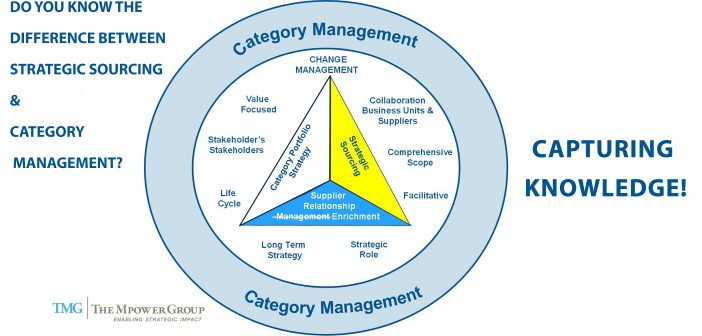When was the last time you hired an external consultant? Whether it was recently or several years ago, the reason was probably the same – you needed knowledge / expertise that you didn’t feel you had access to internally. For purposes of this blog, I am using the term consultant generically – it can be ANY professional service / skill set (e.g. engineering, analytics, project management, legal, IT, etc.). When you hired that consultant, did you ensure that the knowledge they brought to you was somehow captured so that you did not need to keep bringing in that same skill set over and over again? If not (MOST organizations DO NOT) why not?
Every time we help a client source professional services, we always ask – what are you doing to capture the knowledge being imparted by the consultant? To be honest, we usually get blank stares as if we were asking something that had never even crossed their mind (and it probably had not). Even when we have situations where our client is doing some of the work themselves (like engineering services) they are still reluctant to require (or even ask for that matter) the consultant for knowledge transfer. THIS IS A MUST IN CATEGORY MANAGEMENT. Your job as a Category Management professional is to extract as much value as you can from your supplier relationships so knowledge transfer is critical.
Knowledge transfer can happen in a variety of ways BUT it won’t happen at all unless you, as the buying organization, insist on it. The most common way is to set up consultant / client teams where your people work side by side with the consultants. It is a great way for your people to get real work done while learning on the job. One word of caution – make sure your people are actually doing some of the work and not just shadowing the consultants. You can also ask the consultants to hold weekly or daily lunch and learns to share their best practices with your people. Quarterly day-long workshops where new processes / technology is shared is also effective. Remember, you are paying for the expertise so EXPLOIT it (in a good way of course). Companies spend so, so much on professional services that is a missed opportunity if at least some knowledge is not left behind.
By the way, we need to do the exact same thing within our own four walls – particularly within our Procurement organizations. Most of our clients have three to four generations all working together and there is a tremendous amount of knowledge that can and should be shared amongst the group. We do A LOT of training for in-tact Procurement groups (from CPO down to entry level Buyer) where everyone learns the same content together. What I find most fascinating is watching each generation share their unique knowledge with one another. The more experienced (not old 😊) professionals have years of experience, tribal knowledge and lessons learned to share while the less experienced (younger) professionals often have new ways of looking at old problems – we can all learn together. I recently read an article in HBR entitled “4 Ways to Help Different Generations Share Wisdom at Work”, where the author offered some interesting techniques on how to share wisdom (knowledge).
Capturing and sharing knowledge is a critical success factor for any consulting firm. As your organization continues to make the journey from Strategic Sourcing to Category Management and evolves into an internal consulting practice, capturing knowledge is required!!!
Join in the conversation and let us know what you think . . . . . .


